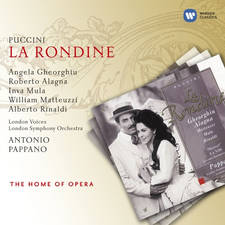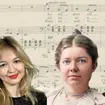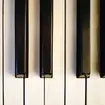Over 300 primary school pupils can now read and write music, thanks to top music school
21 January 2025, 14:42

School of Music | Royal Birmingham Conservatoire
More than 300 Small Heath primary school pupils can now read and write music thanks to a joint project with Royal Birmingham Conservatoire (RBC).
Listen to this article
A new initiative from the Royal Birmingham Conservatoire and Birmingham City University has transformed music education at St Benedict’s School.
In just six months, there has been a significant positive impact on pupil attendance.
“I can’t begin to explain how the project has benefitted the school,” said headteacher Emma Nott. “Our children and staff are brimming with confidence, excitement and a real passion for music.
“We have children who were previously reluctant to speak but are learning to sing. It’s also had a big impact on attendance. Our children really want to come to school because it’s so much fun.”
Read more: The transformative instrument scheme Andrew Lloyd Webber wants in every school

The initiative is further proof of the benefit of music education on young people’s lives, as several studies have found a positive correlation between musical studies and improved academic results.
At an open day in December, headteachers and music leaders from across Birmingham were invited to St Benedict’s to find out how influential the RBC’s Primary School of Music has been.
“It’s not just about the music literacy, it’s about the opportunities this is giving children,” said Richard Shrewsbury, Head of Learning and Participation at RBC, which is part of Birmingham City University.
“These classes have allowed pupils to unleash their creativity in new ways.
“The impact has been immense. It’s not just weekly classes we’re providing; there are also school performances by world-class musicians as well as visits to concerts at RBC."

Teacher Claire Wilson said music had given some pupils “a platform to shine” and “to succeed in a way that they had not necessarily experienced in other areas of the curriculum”.
The school’s music lead added: “The potential for the power of music to transform, to inspire, to open minds, and to open doors had not been fully explored here until now.
“What we quickly realised is that these lessons don’t just serve to upskill our children in their musical ability, they are an opportunity for personal growth, too.
“Children are developing imagination and creativity. They are developing confidence to perform, to work as a team, to develop listening, attention, and cooperation skills.”

As part of the ambitious initiative, which is being led by RBC staff and students, training is being offered to teachers at St Benedict’s to ensure the project is sustainable.
There are also plans to have develop a fully-fledged curriculum by the end of 2025 that can be replicated in other primary schools.
“Our aim is to open up the learning at St Benedict’s and become a training base for teachers across Birmingham and the region,” Shrewsbury explained.
Nott added: “This learning is something we want to share with other schools. It’s not just about St Benedict’s. This project could have real benefits for schools across the country.”



































